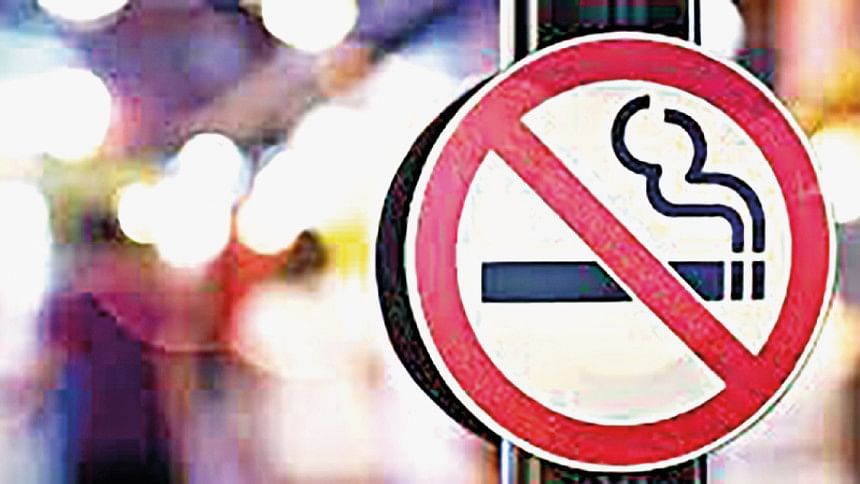Smoking in public

In order to regulate smoking in public, the relevant law in place is the Smoking and Tobacco Products Usage (Control) Act of 2005 (the Act). Section 4 of the Act prohibits smoking in public places. Any person who commits this offence shall be punished with a fine that may extend to Taka 300. If any person commits the same offence for the second time or thereafter, he/she shall incur twice as much fine.
According to Section 2(f) of this Act, public places include educational institutions, government offices, hospitals and clinics, curt buildings, railway stations, public toilets, children's parks, fairs or passenger shelters, any other place declared smoking-free by the government or local government, and many others. As per Section 2(g), public transport means any vehicle used for the carriage of passengers for hire, whether on a regular or occasional basis. This includes ships, launches, trains, buses, motor vehicles, and other forms of public transportation. Additionally, the Smoking and Tobacco Products Usage (Control) Rules, 2015 seek to regulate the sale and distribution of tobacco products.
Despite existing laws to prevent smoking in public, public smoking does not seem to be regulated as such. The reasons behind this lack of implementation are multifarious. First, many people are either unaware of the laws or do not consider them to be applicable on them. Low fines and lack of enforcement are also two major obstacles to enable realisation of smoke-free public environs and spaces. Pertinent to note, according to Section 7 of the Act, the owners of public places and public transport in Bangladesh can designate areas where people can smoke. This also militates against stricter measures in regulating smoking in public places.
The law on smoking in public places needs to be amended to increase fine for smoking in public places. Measures banning smoking in certain categories of public places, increasing taxes on tobacco products, and providing smoking cessation services can also be key. In the end, the government needs to play a pivotal role in raising mass awareness as well.
Atiqur Rahaman
The writer is a student of Law at University of Asia Pacific.

 For all latest news, follow The Daily Star's Google News channel.
For all latest news, follow The Daily Star's Google News channel. 



Comments